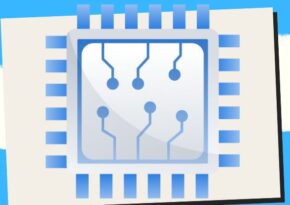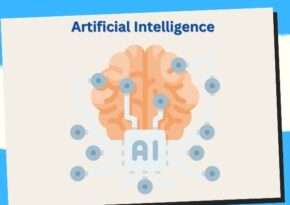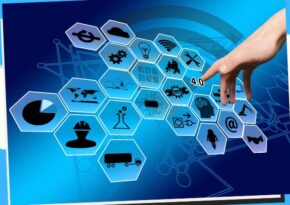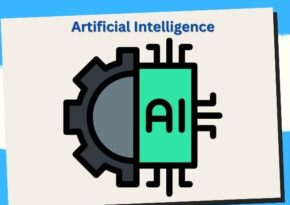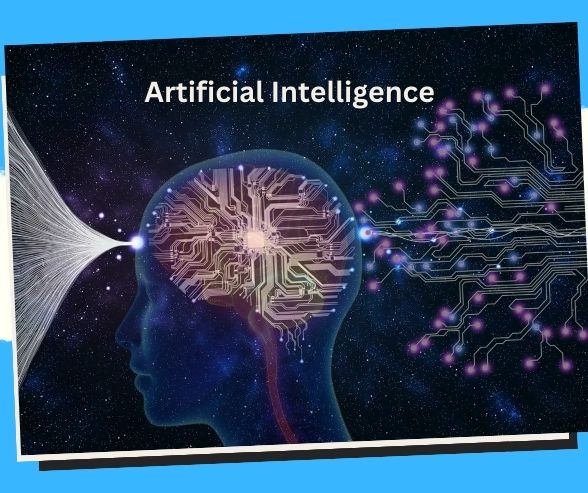
 Justice Unveiled: Striving for Fairness in AI-Powered Criminal Justice
Justice Unveiled: Striving for Fairness in AI-Powered Criminal Justice 
Discover the journey towards achieving fairness in AI-driven criminal justice systems. Uncover how technology is reshaping the legal landscape for a more equitable future. Join the conversation now. 
 Fairness in AI-Driven Criminal Justice Systems: A Path to Equality and Justice
Fairness in AI-Driven Criminal Justice Systems: A Path to Equality and Justice 
In an era where technology plays an increasingly central role in our lives, AI-driven systems are now making their presence felt in our criminal justice system. These systems promise efficiency and data-driven decision-making, but they also bring with them the need to address ethical and moral dilemmas, particularly in the realm of fairness. This article dives deep into the concept of fairness in AI-driven criminal justice systems, exploring the challenges, implications, and potential solutions to ensure a more just legal system.
 The Promise of AI in Criminal Justice
The Promise of AI in Criminal Justice
AI has permeated various aspects of our lives, from virtual assistants on our smartphones to advanced medical diagnostics. The potential for AI to revolutionize operations is substantial in the criminal justice sector. AI-driven systems can be used for predictive policing, risk assessment, and sentencing recommendations. These technologies can help law enforcement agencies make data-informed decisions, potentially reducing crime rates and improving resource allocation.
However, as AI systems become increasingly integrated into the criminal justice landscape, the conversation around fairness takes center stage. Fairness concerns in AI-driven criminal justice systems revolve around potential biases, discrimination, and the need for transparency in decision-making processes.

 The Challenge of Bias in AI
The Challenge of Bias in AI
One of the primary concerns in AI-driven criminal justice is the potential for bias in algorithms. When trained on historical data, AI systems can inadvertently inherit and propagate biases in that data. For example, if historical data contains racial, gender, or socioeconomic biases, the AI system can perpetuate these biases when making predictions or recommendations.
Bias in AI-driven criminal justice systems can manifest in various ways:
- Pretrial Detention and Sentencing: Biased algorithms may recommend longer sentences or a higher likelihood of pretrial detention for certain demographic groups, leading to disproportionate imprisonment rates.
- Predictive Policing: AI systems may suggest allocating more resources to certain neighborhoods based on historical data, inadvertently reinforcing existing patterns of over-policing.
- Risk Assessment: Biased risk assessment models may label individuals as high risk when they are not, potentially impacting their parole or release decisions.
 The Importance of Fairness
The Importance of Fairness
Ensuring fairness in AI-driven criminal justice systems is not just a moral obligation; it’s a legal and constitutional one. Our legal systems are built on principles of fairness, justice, and due process, and introducing biased AI-driven decision-making undermines these fundamental principles. It can lead to discriminatory practices, civil rights violations, and a lack of public trust in the legal system.
Fairness in criminal justice can be defined in several dimensions:
- Procedural Fairness: Ensuring the processes and procedures used to make decisions are transparent, consistent, and equitable.
- Distributional Fairness: Ensuring that the outcomes of decisions are distributed fairly and do not disproportionately impact certain groups.
- Retributive Fairness: Ensuring that the punishment or consequences assigned to individuals are commensurate with the harm caused.
- Corrective Fairness: Ensuring systems have mechanisms for correcting errors and addressing unjust outcomes.
 Unpacking the Notion of Fairness
Unpacking the Notion of Fairness
The concept of fairness in AI-driven criminal justice systems is multifaceted and complex. It involves a delicate balance of trade-offs and considerations that impact individuals and society. Let’s delve into different notions of fairness:
1. Individual Fairness: This concept suggests that individuals who are similar in relevant aspects should receive similar treatment from the AI system. It aims to protect individuals from arbitrary or discriminatory decisions.
2. Group Fairness: Group fairness ensures that the AI system’s outcomes are equitable across various demographic groups, such as race, gender, or socioeconomic status. It aims to reduce disparities in the system’s impact.
3. Process Fairness: Process fairness emphasizes that decision-making should be transparent and consistently applied to all individuals, irrespective of their background.
4. Outcome Fairness: Outcome fairness examines the distribution of decisions and consequences to avoid outcomes that disproportionately harm particular groups.
5. Intersecting Biases: Fairness issues can intersect. For example, an AI system can exhibit racial and gender biases simultaneously, necessitating careful consideration of how these biases interact.
 Detecting and Mitigating Bias in AI
Detecting and Mitigating Bias in AI
Detecting and mitigating bias in AI-driven criminal justice systems is a top priority. The following strategies are essential in addressing these concerns:
1. Diverse and Representative Data: Training data should be diverse and representative of the population to minimize bias. Collecting data that accurately reflects the demographics of the communities served by the criminal justice system is crucial.
2. Bias Audits: Regularly audit AI systems to identify and correct biases. Internal or external entities can conduct these audits to ensure objectivity.
3. Algorithmic Transparency: Make AI systems transparent by providing information about how decisions are reached. This transparency can help individuals understand the reasoning behind a decision and challenge it if necessary.
4. Regular Testing and Validation: Continuously test and validate AI models to ensure accuracy and fairness. Adjust algorithms as needed to minimize bias.
5. Community Input: Solicit feedback and input from the communities affected by AI-driven criminal justice systems. This helps in designing systems that are responsive to local needs and concerns.
 Ethical and Legal Frameworks
Ethical and Legal Frameworks
Ethical and legal frameworks are essential to ensure fairness in AI-driven criminal justice systems. These frameworks guide responsible AI use, encourage transparency, and set boundaries to prevent harm. Some of the key aspects include:
1. Privacy Protection: Safeguard the privacy of individuals by strictly regulating the collection and use of personal data.
2. Transparency Requirements: Mandate transparency in AI systems, making it clear how decisions are made and what data is used.
3. Accountability Measures: Implement mechanisms for accountability in case of erroneous or biased decisions made by AI systems.
4. Equity Assessments: Conduct equity assessments to ensure AI systems are not disproportionately affecting vulnerable or marginalized communities.
5. Regulatory Oversight: Establish regulatory bodies that oversee AI use in criminal justice and hold agencies accountable for ethical practices.
 The Path to a More Just Future
The Path to a More Just Future
As we navigate the terrain of AI-driven criminal justice, the road to fairness may be challenging but not insurmountable. With a combination of ethical guidelines, regulations, and ongoing technological advancements, we can steer AI toward delivering justice without bias.
We must recognize that while AI is a powerful tool, it is not a panacea for all our challenges in the criminal justice system. Human judgment, empathy, and ethical considerations remain indispensable in delivering justice.
 The Role of All Stakeholders
The Role of All Stakeholders
The quest for fairness in AI-driven criminal justice systems requires a collaborative effort among various stakeholders:
- AI Developers: Developers must prioritize fairness and accountability in AI systems, actively working to minimize biases in their models.
- Legal Experts: Legal experts can help shape regulations and guidelines that ensure the ethical use of AI in criminal justice.
- Policy Makers: Policymakers are pivotal in creating legislation that sets the standards for fairness and accountability in AI use.
- Community Advocates: Advoc
ates can represent the interests of affected communities, ensuring their voices are heard in designing and deploying AI systems.
- General Public: Public awareness and engagement are essential to hold AI systems accountable and demand transparency and fairness.
 A Vision of Equitable Justice
A Vision of Equitable Justice
In conclusion, the path to fairness in AI-driven criminal justice systems aligns with our collective vision of a more equitable and just society. As AI technology continues to evolve, our commitment to addressing biases and ensuring fairness must evolve with it.
The goal is not only to improve the efficiency of the criminal justice system but also to enhance its fairness and impartiality. Through ethical AI development, robust regulatory frameworks, and a shared commitment to justice, we can pave the way for a future where AI is a force for equality and justice, not an instrument of bias and discrimination.
Related Queries
Fairness in AI-driven criminal justice systems
Reshaping fairness in law enforcement
Tackling bias and Injustice in AI criminal justice
The AI revolution in criminal justice
Ethical considerations in AI criminal justice
Transforming the courtroom with AI
AI behind bars: Future of Fair Criminal Justice
Legal Algorithms and fairness
Striving for fair AI justice
Breaking the bias barrier in AI justice
Save/Share this story with QR CODE
Disclaimer
This article is for informational purposes only and does not constitute endorsement of any specific technologies or methodologies and financial advice or endorsement of any specific products or services.
 Need to get in touch?
Need to get in touch?

We appreciate your reading. 
1.) 

Your DONATION will be used to fund and maintain NEXTGENDAY.com
Subscribers in the Philippines can make donations to mobile number 0917 906 3081, thru GCash.
3.) 
4.) 
AFFILIATE PARTNERS

World Class Nutritional Supplements - Buy Highest Quality Products, Purest Most Healthy Ingredients, Direct to your Door! Up to 90% OFF.
Join LiveGood Today - A company created to satisfy the world's most demanding leaders and entrepreneurs, with the best compensation plan today.

 Business, Finance & Technology
Business, Finance & Technology


